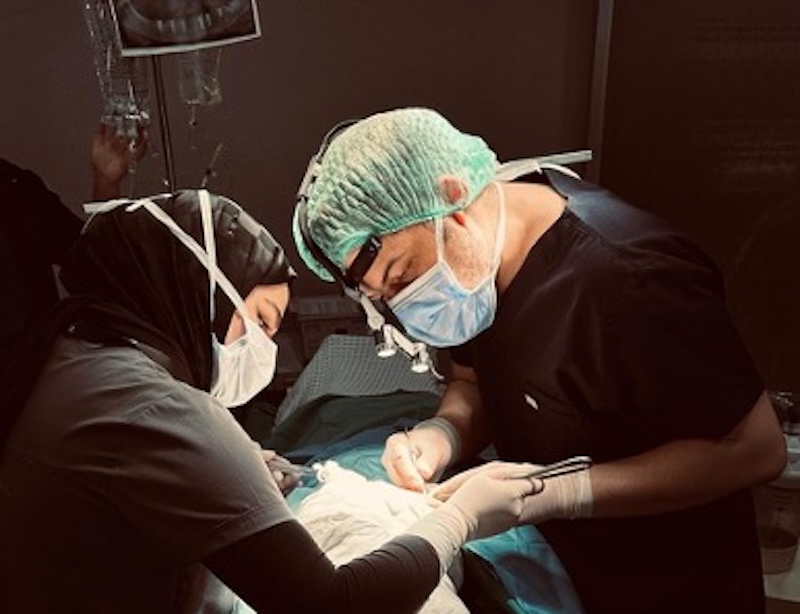Content provided by legal writers
Medical misdiagnosis occurs when a healthcare professional incorrectly identifies a patient’s condition, leading to improper treatment and potentially serious health risks. For students, who are often navigating a new living environment and managing academic responsibilities, the consequences can be particularly challenging.
Misdiagnosis can disrupt their academic performance, increase stress levels, and even worsen underlying health conditions. Understanding the impact of incorrect medical assessments is crucial to promote a supportive, health-conscious community in educational institutions.
Delays Appropriate Treatment
An incorrect diagnosis significantly delays the path to finding adequate treatment. This obstacle gets in the way of the student’s their ability to manage or resolve health issues promptly.
For example, if a student is misdiagnosed with a common cold when they have strep throat, effective treatment is not provided on time. This can cause their health to exacerbate, and, in time, severely hinder their ability to study, work, and socialize. Because of this, it is crucial for educational institutions to focus on the importance of creating a health-first environment.
Increases Stress and Anxiety
Medical misdiagnosis can significantly increase stress and anxiety levels among students, which is a severe, ongoing problem.
In fact, recent research indicates that 88% of students experienced moderate to severe stress, while 44% showed moderate to severe anxiety. These alarming figures demonstrate the importance of tackling triggers and risk factors – which, often, include unresolved health issues that act as additional stressors.
When students struggle to understand their health problems, it compounds their anxiety, leading to a vicious cycle of deteriorating mental health.
Here, accurate diagnoses and tailored treatments are essential in mitigating stress and improving student well-being, allowing them to focus better on their studies and enjoy a more balanced life.
Leads to Unnecessary Procedures
Medical misdiagnosis often leads to unnecessary medical procedures, causing physical and emotional strain on students. For instance, a student misdiagnosed with appendicitis might undergo a needless appendectomy, exposing them to unwarranted surgical risks.
These procedures not only pose health hazards but also involve substantial time and financial costs. Students might miss classes and fall behind academically due to recovery time. Given these risks, ensuring precise initial diagnoses can prevent avoidable interventions, promote better health outcomes, and safeguard a student’s ability to pursue academic and personal life balance.
Exacerbates Underlying Conditions
Medical misdiagnosis can let existing health conditions go undetected, leaving them untreated or mismanaged. For example, a heart attack misdiagnosed as a simple case of anxiety or indigestion can lead to severe complications, including permanent heart damage or even death.
Students with chronic conditions like asthma or diabetes face significant risks if their symptoms are not accurately identified, leading to inadequate care. Therefore, precise diagnosis is essential to managing and treating underlying conditions effectively, benefiting a student’s long-term health and well-being.
Lowers Academic Performance
A close relationship exists between health and academic performance. Studies have found that poor physical and mental health adversely affect academic outcomes.
So, it’s easy to see how, when students face conditions like untreated depression or chronic pain, their cognitive functions and focus decreases, leading to lower grades and difficulty keeping up with schoolwork.
Proper medical diagnosis and treatment can help mitigate these issues, allowing students to engage fully in their studies and achieve their full academic potential.
Breaking the Vicious Cycle: Raising Awareness and Educational Programs
Raising awareness about the importance of accurate diagnoses and implementing educational programs on campuses can significantly reduce the risks associated with medical misdiagnosis.
Educational institutions can host workshops and seminars focused on recognizing common symptoms and understanding when to seek medical advice. Additionally, integrating health literacy into student orientations ensures that students are better equipped to advocate for themselves in healthcare settings.
By promoting comprehensive health education, universities can empower students to take charge of their health and seek appropriate care when needed.
This content is provided by an independent source for informational purposes only and does not contain legal advice. Consult an attorney or financial advisor when making decisions. This information is provided by legal writers and does not reflect the views or opinions of The Daily Sundial editorial staff.








